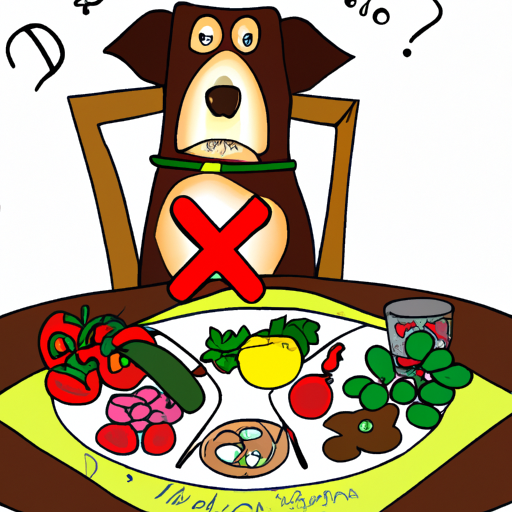As a caregiver to a furry friend, you may often wonder what you can or cannot feed your pet. You, like many dog owners, probably scrutinize the content of commercial dog food, but do you do the same with the human food you occasionally share with your dog? This ultimate guide will help you understand what foods are safe and what could be potentially dangerous for your canine companion.
What Dogs Can Eat
Dogs are omnivores, meaning they can eat a variety of foods. Here are some examples:
- Lean Meats: Chicken, turkey, lean cuts of pork and beef are all good for dogs. Always ensure they are cooked thoroughly and free from bones and excess fat.
- Fish: Salmon, shrimp, and tuna are high in protein and omega-3 fatty acids, which can help keep your dog’s coat healthy and shiny.
- Fruits and Vegetables: Apples (without seeds), bananas, blueberries, cucumbers, and carrots all make for a healthy snack.
| Food | Benefits |
|---|---|
| Lean Meats | High in protein |
| Fish | High in omega-3 fatty acids |
| Fruits and Vegetables | High in vitamins and fiber |
What Dogs Can’t Eat
Some foods that are perfectly safe for human consumption can be toxic to dogs. Below are some examples:
- Chocolate and Caffeine: Both contain substances called methylxanthines, which can cause vomiting, diarrhea, panting, and even death in dogs.
- Grapes and Raisins: These can cause kidney failure in dogs.
- Onions and Garlic: These can cause anemia in dogs, leading to weakness and breathlessness.
| Food | Harmful Effects |
|---|---|
| Chocolate and Caffeine | Can cause vomiting, panting, and death |
| Grapes and Raisins | Can cause kidney failure |
| Onions and Garlic | Can cause anemia |
The Grey Area
There are some foods that dogs can eat in moderation, but could potentially be harmful in large quantities. For example, dairy products can cause digestive problems in some dogs, and nuts, while not toxic, can cause stomach upset and can pose a choking hazard.
How to Introduce New Foods to Your Dog’s Diet
If you’re considering adding new foods to your dog’s diet, follow these steps:
- Introduce the new food in small quantities, mixed in with their regular food.
- Monitor your dog for any signs of digestive upset or allergic reactions.
- If your dog tolerates the new food, you can gradually increase the quantity.
When to Seek Veterinary Advice
If you suspect your dog has eaten something toxic, seek immediate veterinary advice. Signs of food poisoning in dogs may include vomiting, diarrhea, excessive thirst, and lethargy.
Frequently Asked Questions
Q: Can my dog eat eggs?
A: Yes, eggs are safe for dogs to eat in moderation. They are a good source of protein and can be beneficial for an upset stomach.
Q: Are avocados safe for dogs?
A: Avocados contain a substance called persin, which can cause diarrhea and vomiting in dogs. It’s best to avoid feeding avocados to your dog.
Q: Can dogs eat peanut butter?
A: Yes, dogs can eat peanut butter as long as it does not contain xylitol, an artificial sweetener that is toxic to dogs.
In conclusion, feeding your dog a balanced diet is crucial for their health and wellbeing. While dogs can eat a variety of human foods, always do your research and when in doubt, consult with a veterinarian.



